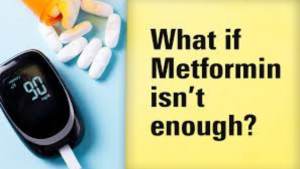Feeling Lost When Doctors Use Big Words?
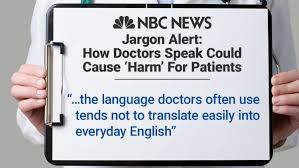
Medical Term! Let me paint a picture for you. You’re sitting on that paper-covered exam table—the one that crinkles every time you shift. The doctor looks over your chart, adjusts their glasses, and says, “You’re showing signs of gastroenteritis.” You nod politely, but your mind? It’s racing. What does that mean? Is it serious? Should I be scared?
Here’s the twist: gastroenteritis is just the medical way of saying stomach flu. That’s it. Something many of us have had after questionable takeout or a bad buffet. You know what? It’s almost laughable. Such a fancy word for something so common.
Honestly, this happens to everyone. A single medical term can make you feel like you’ve been thrown into a foreign-language class mid-semester. And it’s not your fault. Medical terminology was built for precision, not for comfort. But here’s the thing—when you strip away the formality, most terms aren’t nearly as scary as they seem.
This guide is here to be your translator. We’ll unpack confusing medical terms and definitions, break down how to “decode” them like little puzzles, and give you a simple medical conditions list you can keep handy. Think of it as having your own medicine dictionary, but one that speaks like a friendly neighbor instead of a stuffy textbook. And when you want more? www.evaluatemymeds.com has your back with clear, simple explanations.
So, What’s a Medical Term?

Here’s the thing: a medical term is just a label. That’s it. Doctors, nurses, pharmacists—they need a consistent way to talk about conditions and treatments. Without it, communication would be chaos. Imagine if one doctor wrote “sugar disease,” another wrote “high glucose,” and another wrote “Type 2.” How would anyone keep track?
But the catch? Many of these terms are rooted in Latin and Greek. And unless you binge-read philosophy books in college, they can feel totally foreign. “Hypertension” sounds overwhelming until you realize its medical meaning is just “high blood pressure.” “Myocardial infarction”? That’s the formal way of saying heart attack.
A good medicine dictionary bridges the gap, taking jargon and turning it into something you’d actually say to your spouse, your kid, or your best friend. Once you see the plain medical terms and definitions, you wonder why doctors don’t just talk this way all the time.
Why Should You Care About Medical Terminology?
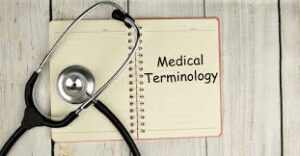
Let me explain. You might be thinking, “Isn’t it the doctor’s job to know this stuff?” And sure, that’s true. But here’s the thing—you live with your condition every single day. Your doctor goes home at the end of the shift; you don’t get that luxury. Knowing the medical meaning of what’s happening in your body isn’t about impressing anyone. It’s about taking charge.
Think of it like cooking. You don’t need to be Gordon Ramsay to know what “sauté” means. But knowing the term keeps you from burning your onions. Same with health. Understanding medical terminology helps you follow instructions without second-guessing.
-
It builds confidence. Instead of nodding when your doctor says “anemia,” you’ll know it means your red blood cells are low.
-
It keeps you safe. Confusing one medical term for another could cause medication errors. Even jotting down a personal medical conditions list can prevent mistakes.
-
It reduces fear. Words like “epistaxis” sound dramatic. But once you know it just means “nosebleed,” you breathe easier.
You know what? The more you learn, the more you realize how much power comes with understanding. It’s like getting the subtitles turned on during a movie—you finally catch every detail. That’s why I always recommend bookmarking a site like www.evaluatemymeds.com. It’s there when you don’t feel like flipping through a dusty dictionary.
Everyday Medical Terms and Definitions That Trip People Up
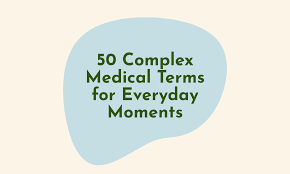
Here are some examples of words that sound intimidating but really aren’t:
-
Hypertension → High blood pressure. Super common, treatable, but serious if ignored.
-
Arthritis → Inflamed joints. Think stiff knuckles on cold mornings.
-
Anemia → Low red blood cells. Often the reason someone feels wiped out all the time.
-
Gastroenteritis → Basically the stomach flu. Usually messy, rarely life-threatening.
-
Diabetes → A condition where the body struggles to regulate blood sugar.
These are the kinds of words you’ll see on test results or hear casually tossed out in appointments. And once you know the medical meaning, they lose their bite. Having a go-to place for medical terms and definitions, whether it’s a physical book or www.evaluatemymeds.com, makes you feel like you’re holding the cheat sheet no one else handed you.
Cracking the Code: How a Medical Term is Built

Here’s the thing: every medical term is like a Lego set. It’s made of pieces that can be combined in predictable ways. Once you recognize the pieces, you can start decoding words you’ve never even seen before.
-
Prefix: The opener. “Hyper-” means too much. “Hypo-” means too little.
-
Root: The heart of the word. “Cardio” = heart. “Neuro” = nerves.
-
Suffix: The closer. “-itis” = inflammation. “-emia” = blood condition.
So if someone says “hyperglycemia,” you’ve got this: hyper = too much, glyc = sugar, emia = blood. Too much sugar in the blood.
And honestly? Once you see these patterns, it’s addictive. You start picking them up everywhere. It’s like watching a baseball game—at first, the plays make no sense, but after a while, you recognize the signals. A medicine dictionary just gives you the playbook.
Where You’ll Hear These Words (Spoiler: Everywhere)
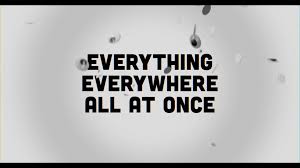
Here’s the thing—you don’t need to be in a hospital bed to hear medical terminology. It creeps into everyday life more than you realize.
-
At the pharmacy. Labels love words like “dosage” and “contraindication.” Ever wonder what “OTC” means? Over the counter—no prescription needed.
-
At the doctor’s office. You’ll hear “diagnosis” (what you’ve got), “prognosis” (what’s expected to happen), and “acute” vs. “chronic” (short-term vs. long-term).
-
On lab reports. Terms like “cholesterol,” “glucose,” and “hemoglobin” aren’t just numbers—they’re signals. Knowing the medical meaning makes those reports way less intimidating.
And you know what? Once you start catching on, you’ll notice them in commercials too. Next time you see an ad for a new drug, listen closely. You’ll probably hear at least three medical terms and definitions tucked in there.
A Quick and Handy Medical Conditions List

Here’s a starter list you can actually use:
-
Stroke → When blood flow is blocked to the brain. Time-sensitive and life-threatening.
-
COPD → Chronic lung disease. Imagine trying to breathe through a coffee straw.
-
Migraine → Severe headaches that make light and noise unbearable.
-
Osteoporosis → Weak bones that fracture easily.
-
Asthma → Airways tighten, swell, and make breathing difficult.
This list isn’t everything, but it’s enough to feel prepared. And with resources like www.evaluatemymeds.com, you can expand it anytime you want.
Remembering a Medical Term Without Stress

Memorizing terms doesn’t have to feel like studying for finals. Let me explain how to make them stick:
-
Analogies work wonders. The heart is plumbing. Arteries are pipes. A blockage? That’s a clog. Suddenly, “arteriosclerosis” feels less like a monster and more like a plumbing problem.
-
Flashcards help. Index cards, apps, sticky notes on your fridge—whatever works. Each one is like a mini medicine dictionary.
-
Personalize it. Write your own medical conditions list in words that make sense to you. That’s what turns a term into memory.
-
Practice as you go. When you see “anemia” on a report, connect it: low red blood cells = low energy. Say it out loud if you have to.
Wrapping It Up: Why Words Matter
So, here’s what I hope you remember: a medical term can look intimidating on paper, but once you break it down—or get it explained—it’s just another word.
Learning the basics of medical terminology, keeping a simple medicine dictionary, checking medical terms and definitions, and making your own medical conditions list puts you back in the driver’s seat.
You know what? Healthcare isn’t supposed to feel like a foreign movie without subtitles. It should feel like a conversation you’re part of. And with tools like www.evaluatemymeds.com, you’ll never be left guessing again.
Because words aren’t just words. They’re the keys to your health story.
FAQ Section
Q1. What is the simplest definition of a medical term?
A medical term is a label used in healthcare to describe a condition, symptom, test, or treatment in a precise way.
Q2. Where can I find an easy medicine dictionary online?
You can check out www.evaluatemymeds.com for plain-language guides. For more technical references, try MedlinePlus or Mayo Clinic.
Q3. Why are medical terms so complicated?
Because most medical terminology comes from Latin and Greek. It was created to be consistent for healthcare professionals worldwide, but that doesn’t mean patients can’t learn it too.
Q4. How can I remember difficult medical terms?
Use analogies, flashcards, or a personal medical conditions list. Relating words to real life (like thinking of clogged pipes for blocked arteries) makes them easier to remember.
Q5. Is knowing medical terminology really important for patients?
Yes. It builds confidence, reduces confusion, and helps you make safer choices about your care.
External Link Suggestions:
Internal Link Suggestions:
-
Medication Conditions Explained: https://evaluatemymeds.com/index.php/glossary-simple-medical-terms/
-
Patient Resources: https:https://evaluatemymeds.com/index.php/blog/
-
Drug Interaction Checker: https://evaluatemymeds.com/






